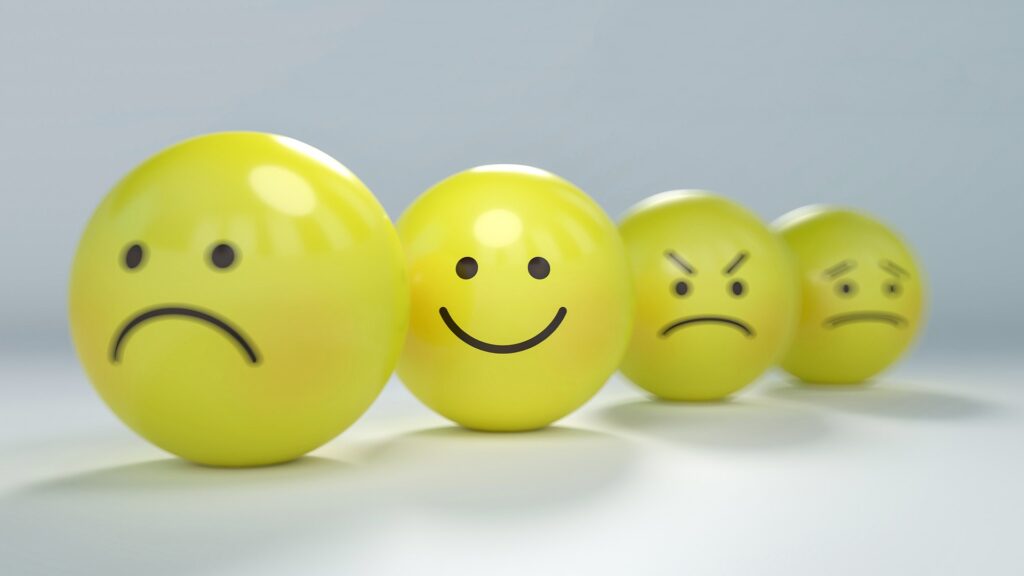Have you noticed there is a lot of anger these days? Social media is awash with angry rants about anything and everything. And nobody could accuse our news feeds of sending out positive vibes in the daily misery bulletins about conflict around the world.
Industrial disputes are the last resort of an angry workforce and there have been many of these on the picket line in recent times. Roadworks around the town have made short journeys much longer dashes around streets not built for heavy traffic.
So anger has both large and small consequences. World leaders throw missiles at each other, key workers down tools and people struggle to turn up on time. And there is a personal cost to take into account too. Anger has far-reaching consequences which we never think of when overpowered by it.

The Dangers
Table of Contents
What damage could you be doing to your health while you fume and fret? Heart attacks, high blood pressure, prematurely ageing skin and digestive problems are often connected to angry feelings seething within. When you go through a bout of rage, your voice is raised, the nerves in your body tense, the heart beats faster but it doesn’t pump efficiently, which could lead to damage of the arteries or risk of a stroke.
From Dr Jekyll to Mr or Mrs Hyde is a short leap once you have the habit of seeing red over things both big and small. Relationships suffer, as does your children’s emotional well-being, your progress up the career ladder and your chance to forge lasting friendships.
Shouting Doesn’t Work
When little things seem to irk you beyond belief, you feel like the world is conspiring against you and life seems exasperating, it may seem like the only way to get through to people is to shout and scream. But when you raise your voice, you’ve already lost the argument as logic and reason fly out of the window.
When anger flares, like fear or anxiety, it creates a physical response described as ‘fight or flight’ which accelerates bodily functions in preparation to defend or attack a predator. The brain and body are flooded with chemicals which divert attention away from thinking rationally and towards a primaeval need to protect and survive. This is often inappropriate for the circumstances of modern life and can trigger sometimes violent reactions which can lead to a lifetime of regret.
Channelled in a positive way, anger can be a powerful tool for change. Like many emotions, it’s a warning that something isn’t right and needs attention. If the injured or aggrieved learn to overcome anger in a resourceful and reasonable way, the neurological flames of fury can be doused before any damage is done.
Tantrums are for Toddlers
As small children, when we express anger by throwing tantrums, these are regarded as bad behaviour and are often rewarded with a good telling off. So we learn to pack away anger and struggle to resolve it in an effective way. That’s why many adults bottle up anger until the pressure builds up to an explosive degree. Reconnecting with negative emotions like anger helps to more effectively resolve conflict and injustices.
Tips for Taming Your Anger:
- Think before you speak
- Express concerns calmly and without criticism
- Get advice from someone impartial
- Step away from conflict or aggression
- Identify possible solutions
- Explain your feelings
- Don’t hold a grudge
- Use humour to release tension
- Be prepared to compromise
- Apologise if you overstep the mark or are wrong
- Seek therapy to manage impulse control and deal with addictions or violence
Having a bit of a temper is regarded as a behavioural issue which can also be an inherited characteristic. We all have to learn to curb the excessive behaviour which toddlers express without conscience. An angry adult is often masking hurt and fear and suffers alone as they’re not nice to be around. Human beings are hardwired to cooperate for the success and survival of a community. Power struggles or injustices within a community or family can destabilise the security and peace of mind we rely on each other to provide. Whilst anger is a necessary response to danger and part of the survival instinct which keeps us alive, balancing emotions so it is a force for the good is important for our own well-being and that of those around us. Society punishes those who don’t deal with conflict in a grown-up and responsible way.
